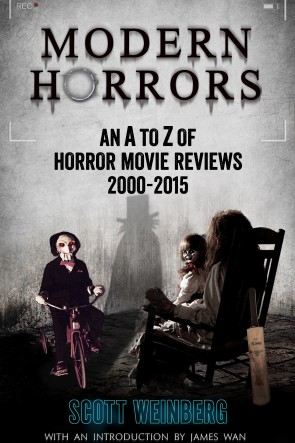Retro Review: CARRIE (2013){0}
The list of “high profile” horror film remakes is a long and colorful one indeed. One tends to think of these “reboots” as disposable at best, or (in most cases) complete worthless. But if you look a little more closely it seems that classics like The Thing, The Blob, The Fly, Dawn of the Dead, and Invasion of the Body Snatchers all inspired some damn good remakes. And that’s not even including the half-decent if not exactly spectacular remakes like Fright Night, My Bloody Valentine, Friday the 13th, and The Texas Chainsaw Massacre.
A remake (or a sequel or a prequel) is its own film, and it will live or die based on the creativity of the filmmakers at hand. With that in mind, we approach the “unnecessary” but still legitimately provocative idea of a Carrie remake with equal parts skepticism and optimism. Does this version blaze any new trails, employ any of the Stephen King material that Brian De Palma avoided in his (rather excellent) 1976 rendition, or simply meander in themes, characters, and images that are cribbed from a better film?
Well, if you’re a huge fan of Stephen King’s source material, Brian De Palma’s well-regarded adaptation or even the 1999 semi-sequel or the 2002 TV remake of Carrie, odds are you’ll find something to appreciate in Kimberly Peirce’s modernization of the tragic tale. The 2013 version doesn’t bring much new to the table in a thematic sense — it’s still the story of a lonely female outcast with weird powers and an insane mother who gets pushed too far by horrible bullies — but what the new Carrie lacks in original ideas, it makes up for in fine performances, a calm but quick editorial style, and some subtle, clever nuances that indicate what a fine filmmaker Peirce (Boys Don’t Cry) actually is.
What’s most effective here is the minor but tragic morality play that Carrie White represents. Peirce captures those vital moments of young adulthood that demand some sort of response: are we content to grow petty and mean — or are we intent on becoming honest and noble? Will you go along with the crowd to make life easier — or will you stand up and do the right thing, even if people think you’re crazy? The new Carrie, thanks to an astute director and some very fine young actors, brings the issue of of teenage bullying to the screen in a way that’s neither preachy nor pedantic, which is impressive in any horror film, let alone one that’s a remake of a beloved novel and a well-regarded film.
Although she’s sure to be compared (and probably unfavorably) to Sissy Spacek’s masterful 1976 turn as Carrie White, the young and lovely Chloe Grace Moretz delivers a simply fantastic performance. Carrie White is not meant to be an ugly girl who slowly turns pretty; she’s meant to be a pretty girl who is terrified of becoming a woman, and Ms. Moretz does a wonderful job of balancing earnest innocence and, as the film progresses, some truly dark moments.
In the role made famous by Piper Laurie, Julianne Moore is (of course) a lot of dark and devilish fun as Carrie’s perpetually bible-thumping kook of a mother, and the supporting cast is populated by some surprisingly strong young actors. Gabriella Wilde, Portia Doubleday, and Ansel Elgort are particularly strong as A) the sweet girl, B) the mean girl. and C) the nice guy, respectively. And hey, bonus points for hiring the usually hilarious Judy Greer for a non-comedic performance. As the only authority figure who seems to actually care about Carrie, Greer provides an essential counterpoint to all of the poor girl’s suffering.
In most cases, a horror remake that simply “colors inside the lines” of a well-established film is a lazy or tiresome affair, but Carrie (2013) is an exception to that rule. If what you’re after is a Carrie remake that shakes things up and delivers a unique experience, you may want to pass on this one. If you’re fine with an old story being updated, modernized, and directed towards a young, contemporary audience, you may be pleasantly surprised at how powerful a punch young Carrie still packs.








